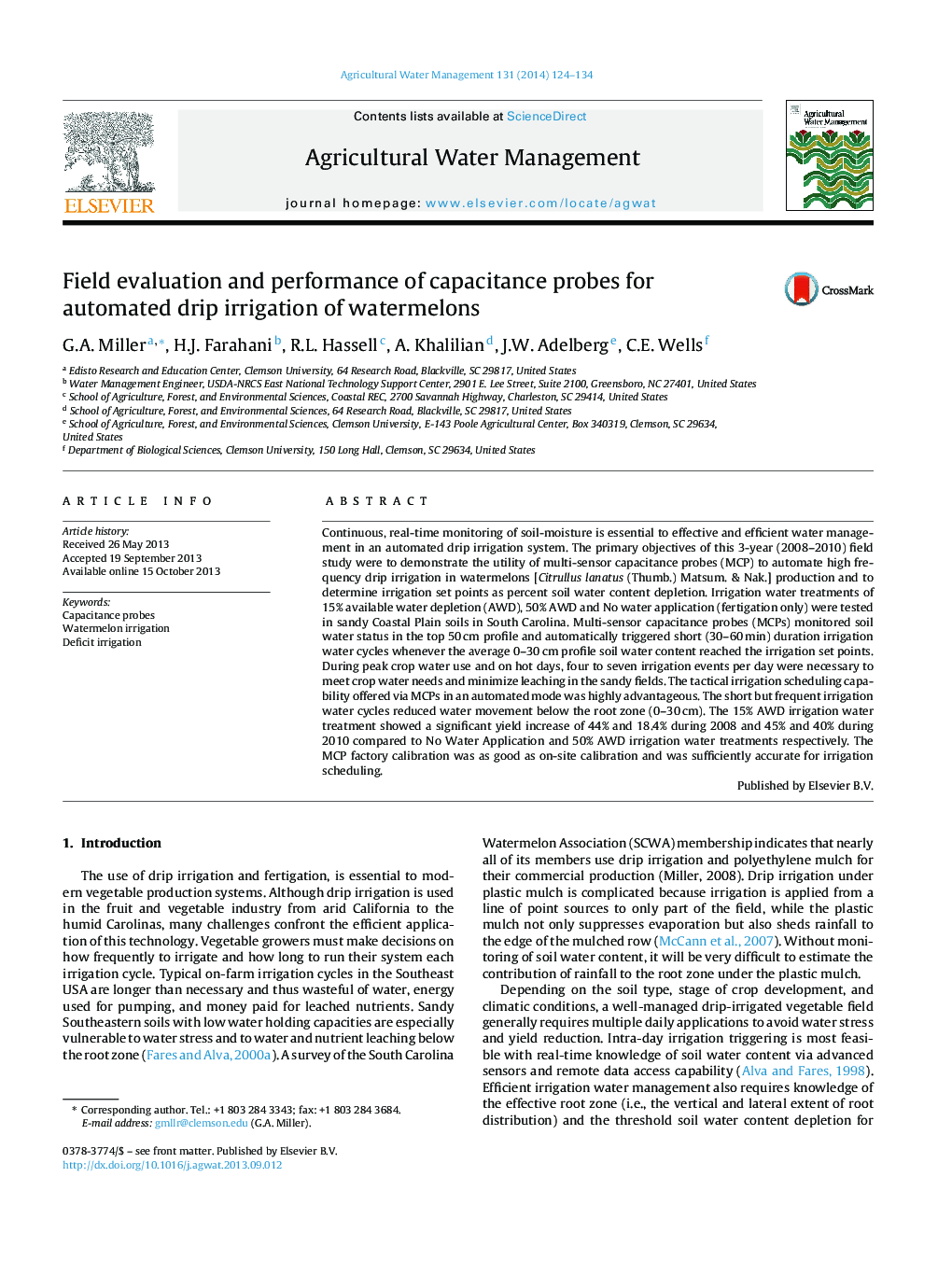| Article ID | Journal | Published Year | Pages | File Type |
|---|---|---|---|---|
| 6364011 | Agricultural Water Management | 2014 | 11 Pages |
Abstract
Continuous, real-time monitoring of soil-moisture is essential to effective and efficient water management in an automated drip irrigation system. The primary objectives of this 3-year (2008-2010) field study were to demonstrate the utility of multi-sensor capacitance probes (MCP) to automate high frequency drip irrigation in watermelons [Citrullus lanatus (Thumb.) Matsum. & Nak.] production and to determine irrigation set points as percent soil water content depletion. Irrigation water treatments of 15% available water depletion (AWD), 50% AWD and No water application (fertigation only) were tested in sandy Coastal Plain soils in South Carolina. Multi-sensor capacitance probes (MCPs) monitored soil water status in the top 50Â cm profile and automatically triggered short (30-60Â min) duration irrigation water cycles whenever the average 0-30Â cm profile soil water content reached the irrigation set points. During peak crop water use and on hot days, four to seven irrigation events per day were necessary to meet crop water needs and minimize leaching in the sandy fields. The tactical irrigation scheduling capability offered via MCPs in an automated mode was highly advantageous. The short but frequent irrigation water cycles reduced water movement below the root zone (0-30Â cm). The 15% AWD irrigation water treatment showed a significant yield increase of 44% and 18.4% during 2008 and 45% and 40% during 2010 compared to No Water Application and 50% AWD irrigation water treatments respectively. The MCP factory calibration was as good as on-site calibration and was sufficiently accurate for irrigation scheduling.
Keywords
Related Topics
Life Sciences
Agricultural and Biological Sciences
Agronomy and Crop Science
Authors
G.A. Miller, H.J. Farahani, R.L. Hassell, A. Khalilian, J.W. Adelberg, C.E. Wells,
